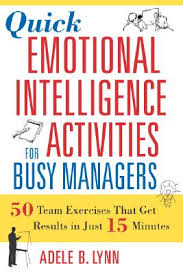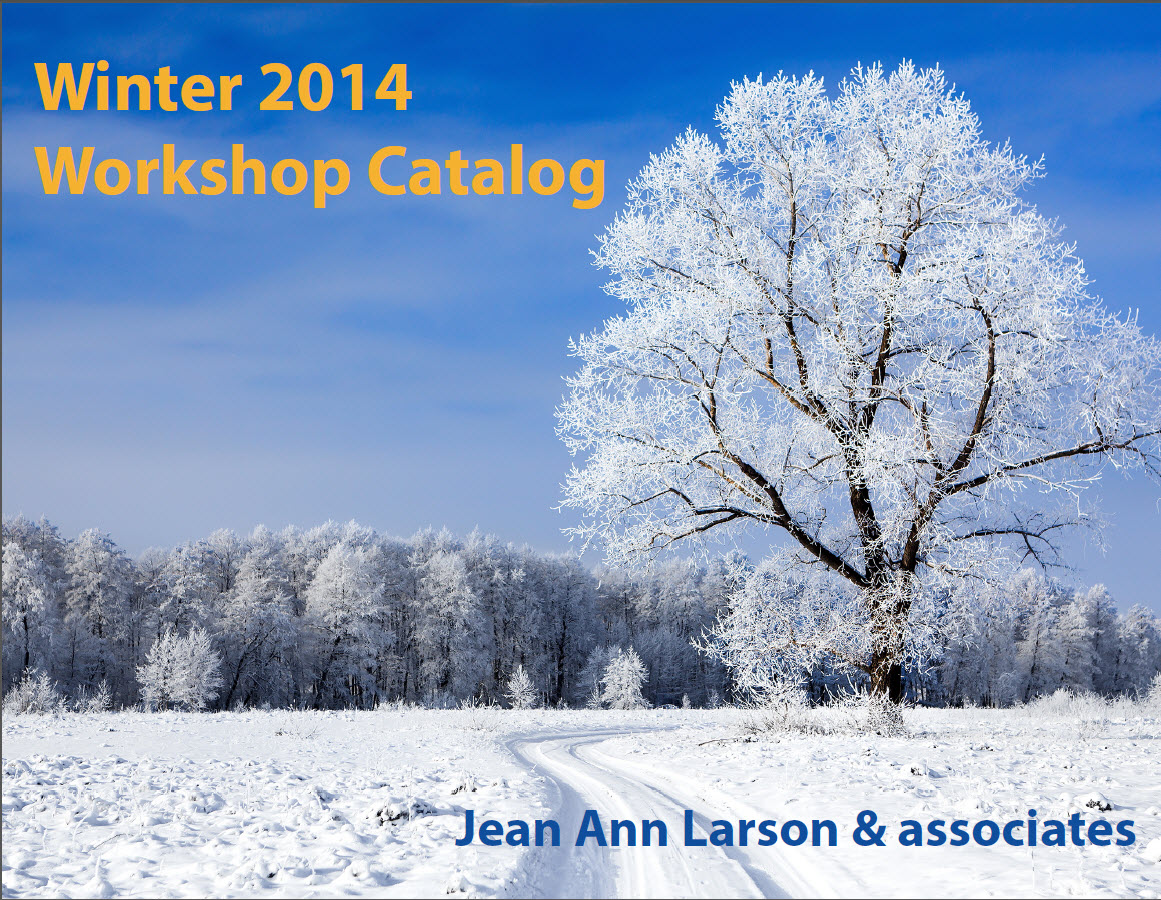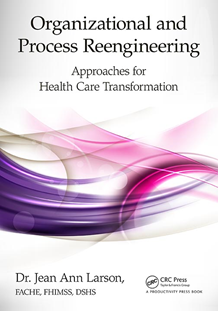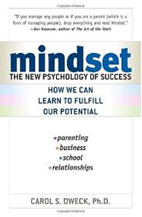 |
|
Leadership from the Field - The Power of Self-Awareness
|
|
 |
 |
 |
 |
 |
 |
 |
 |
 |

Cultural Transitions Through Strategic Change and Leadership
|
| |
Leaders' Newsletter March 2015
|
|
|
 |
 |
 |
 |
 |
 |
 |
 |
 |
 |
 |
 |
 |
 |
 |
 |
 |
 |
Welcome to this month's issue of "Leading from the Field."
|
Hi Greetings!,
Welcome to the March 2015 issue of "Leading from the Field." I am pleased to welcome several new subscribers and followers. In this issue:
- Leadership from the Field - The Power of Self-Awareness
 - EQ Workshop - Building Self-Awareness and Self-Regulation
- Speaking Engagements in Chicago in March and April - ACHE Congress 2015 Workshop, and 3 sessions at HIMSS 2015
- What I am Reading: Mindset: The New Psychology of Success
- Last Call for the Winter Catalog
- Author Page
- New Book!
Also, please check out my new website and browse through my blog posts, and leave your comments and replies! www.jalarson.netThank you, Dr. Jean Ann Larson Managing Partner Jean Ann Larson & Associates 800-823-4330 (office) |
|
Leadership from the field
|

The Power of Self-Awareness
One of the most powerful ways we have to help our organizations and clients navigate change and transition is ourselves. Using the concept of self-as-instrument allows us to provide deeper, lasting value to our practice. Self-as-instrument is defined as our ability to use ourselves potently and it relies on the level of awareness we have about the impact we make, and our ability to make choices to direct and modify that impact.
Awareness is key. Developing our mind so it is aware of self, others, situations, and patterns is the beginning of being able to use ourselves as instruments of change. Self-awareness and self-management become the first requirements. They are also critical to developing our emotional intelligence or EQ.
As consultants and practitioners, various assessments, including EQ, help us better understand ourselves and understand our impact on others and their impact upon us. In turn, we provide that perspective to our clients whether we are coaching them or providing team-based interventions. As consultants, coaches, leaders and facilitators, we need to appreciate and understand how we bring ourselves to our clients and our teams and how we show up. We do this through our actions, behaviors, dialog, questions, and choices.
Questions we can ask ourselves include:
- Are we present with our clients and teams?
- How do we influence them?
- How do we connect with our clients and our colleagues?
According to Peter Block, the author of Flawless Consulting, it is essential that we are authentic with our clients. Are we true to ourselves and our values and do we have the courage to advocate for those values with the client? When we are not sure of ourselves and our role as consultant, whether we are an internal or external consultant, we actually get in the way of our client's growth and development. As such we do ourselves and the client a disservice.
Some ways to improve our self-awareness include:
- Practice self-reflection
- Identify emotional triggers
- Journal about challenging situations and your impressions and reactions
- Share your insights with others
- Seek on-going feedback from trusted sources
We can help or hinder...it is all in how we show up and how we engage our clients in their moments of transition and change.
To learn more about increasing your ability to use yourself as an instrument of change, visit my website at www.jeanannlarson.org or send me a note at jeanann@jalarson.net
Jean Ann Larson & Associates
800-823-4330 (office)
Email ~ Website |
|
Workshop -- Mastering Your EQ - Emotional Intelligence - The Key to Change Leadership Success - A Successful Workshop
|
Eighteen participants joined me at the Society for Health Systems Conference in Orlando on February 18 for a 4-hour preconference workshop: Mastering Your EQ - Emotional Intelligence - The Key to Change Leadership Success. Participants came from all areas of the health care industry and their common connection is that they all have responsibility for leading change in their organizations. The lead in article for this newsletter speaks about using our "self-as-instrument" to help facilitate change for our organizations and clients. Two key requirements to effectively do this are to be self-aware and to self-regulate. These competencies are both part of a key foundation we need for building EQ.
In the article above, I provided a few ideas for building self-awareness. But what about self-regulation? Here are some ideas from the workshop materials:
- Practice self-restraint
- Count to 10 or walk away if you can
- Focus on listening to understand instead of to judge
- Put things into perspective, e.g. ask, "Will this matter in 5 years?"
- Identify your triggers and develop strategies to counteract them
 Drop me a note if you have suggestions and ideas that work for you. Remember, better EQ will help you more effectively facilitate organizational change. Drop me a note if you have suggestions and ideas that work for you. Remember, better EQ will help you more effectively facilitate organizational change.
If you want to improve your team's emotional intelligence, I recommend Adele B. Lynn's book, Quick Emotional Intelligence Activities for Busy Managers. Or if you want to take a deeper dive into improving your skills in EQ, give me a call or drop me a note. I hope to see you in my next Workshop on Mastering EQ.

Jean Ann Larson & Associates
800-823-4330 (office)
Email ~ Website
|
"You have to leave the city of your comfort and go into the wilderness of your intuition. What you'll discover will be wonderful. What you'll discover is yourself." - Alan Alda
|
| Up-coming Speaking Engagements 2015 |

Please join me in Chicago at two upcoming conferences in March and April.
At the American College of Healthcare Executives Congress in Chicago, March 16-19th Click here - Maximizing Healthcare Process Redesign Engagements - Improving Processes, Getting Results and Engaging Others March 19th from 9 AM to noon at the Chicago Hilton. This is a 3-hour workshop with Derk Pronger, COO of Munson Medical Center in Traverse City, Michigan. If you are looking for ways to radically improve your organization, this session is for you.
At the Healthcare Information and Management Systems Society (HIMSS) conference: Chicago, April 13-16th
Click here - The Future of Healthcare Management Engineering: Improving Your Organization's Processes, Outcomes & Technology Benefits Realization
- A workshop on Managing Your Own Professional Transitions
- A session on Balancing Your Professional and Personal Life
At the Business Navigators, Mergers & Acquisitions Forum in Dallas on April 8 (Email me for registration information. It's FREE) - The Power of Leadership for M&A Success
At the Executive Health Network meeting in Dallas, June 24th (Email me for registration information. It's FREE!) - Using Systems Engineering to Improve Health Care
Jean Ann Larson & Associates 800-823-4330 (office) Email ~ Website |
There is a deep wisdom within our very beings if we can only come to our senses and fell it." - Elizabeth Behnke
|
|
Winter Catalog - Last Call

If you're interested in a copy of the Winter Catalog, send me a note at info@jalarson.net with CATALOG in the subject line.
|
 Check out my Amazon.com author page
|
 Coming Soon! New Book

My latest book is coming out in August 2015. The speaking engagement on March 19 draws from the book as well as my experiences as a consultant and executive with several large health systems. If you need to lead your organization through fundamental change and improvement, this book provides a road map along with case studies, templates and lessons learned. Here's what one reviewer said:
"Dr. Jean Ann Larson has developed an invaluable technique that integrates process re-engineering and change management functions derived from her years of experience in the healthcare provider industry. This novel technique will assist healthcare organizations to successfully transcend the implementation of new clinical and financial processes that will be required to address fee for value business models. This book will become an invaluable tool for healthcare executives as they address the pain points of moving from fee for service to fee for value." - Michael W. Davis, Principal, Mountain Summits Advisors LLC, Denver, Colorado
|
 Check out my website and browse through my blog posts, and leave your comments and replies. And don't forget to sign up for my blog posts!Subscribe here |
 |
 |
|  |
 |
 |
 |

Mindset: The New Psychology of Success by Carol Dweck
Every so often a truly groundbreaking idea comes along. This is one. Mindset explains:
- Why brains and talent don't bring success
- How they can stand in the way of it
- Why praising brains and talent doesn't foster self-esteem and accomplishment, but jeopardizes them
- How teaching a simple idea about the brain raises grades and productivity
- What all great CEOs, parents, teachers, athletes know
Mindset is a simple idea discovered by world-renowned Stanford University psychologist Carol Dweck in decades of research on achievement and success. It is a simple idea that makes all the difference.
Dweck explains why it's not just our abilities and talent that bring us success-but whether we approach them with a fixed or growth mindset. She makes clear why praising intelligence and ability doesn't foster self-esteem and lead to accomplishment, but may actually jeopardize success. With the right mindset, we can motivate our kids and help them to raise their grades, as well as reach our own goals-personal and professional. Dweck reveals what all great parents, teachers, CEOs, and athletes already know: how a simple idea about the brain can create a love of learning and a resilience that is the basis of great accomplishment in every area.
In a fixed mindset, people believe their basic qualities, like their intelligence or talent, are simply fixed traits. They spend their time documenting their intelligence or talent instead of developing them. They also believe that talent alone creates success-without effort. They're wrong.
In a growth mindset, people believe that their most basic abilities can be developed through dedication and hard work-brains and talent are just the starting point. This view creates a love of learning and a resilience that is essential for great accomplishment. Virtually all great people have had these qualities.
Teaching a growth mindset creates motivation and productivity in the worlds of business, education, and sports. It enhances relationships. When you read Mindset, you'll see how.
To find out if you have a fixed or growth mindset, take the quiz below.
Mindset Quiz
To what extent do you agree or disagree with these statements:
Strongly Agree Agree Disagree Strongly Disagree
- Your intelligence is something very basic about you that you can't change very much.
- No matter how much intelligence you have, you can always change it quite a bit.
- You can always substantially change how intelligent you are.
- You are a certain kind of person, and there is not much that can be done to really change that.
- You can always change basic things about the kind of person you are.
- Music talent can be learned by anyone
- Only a few people will be truly good at sports - you have to be "born with it."
- Math is much easier to learn if you are male or maybe come from a culture who values math.
- The harder you work at something, the better you will be at it.
- No matter what kind of person you are, you can always change substantially.
- Trying new things is stressful for me and I avoid it.
- Some people are good and kind, and some are not - it's not often that people change.
- I appreciate when people, parents, coaches, teachers give me feedback about my performance.
- I often get angry when I get feedback about my performance.
- All human beings without a brain injury or birth defect are capable of the same amount of learning.
- You can learn new things, but you can't really change how intelligent you are.
- You can do things differently, but the important parts of who you are can't really be changed.
- Human beings are basically good, but sometimes make terrible decisions.
- An important reason why I do my school work is that I like to learn new things.
- Truly smart people do not need to try hard.
To find out how you did on the quiz, reply back to this newsletter and request the Mindset Scoring Key.
|
"The greatest discovery of any generation is that a human being can alter his life by altering his attitude." William James
|

See how we combine powerful diagnostic tools with facilitated workshops to help individuals, teams and organizations become more effective and get better bottom-line results. CLICK on the button to your right and enter the code 221778TES for a no-obligation, COMPLIMENTARY assessment to get started today. Click Here
|
 See you next month
If you would like to continue the discussion, follow me on Facebook, Twitter, LinkedIn and Google+ reply to this Newsletter or call me at 1-800-823-4330.
Please follow me on  Facebook, Facebook,  Twitter, Twitter,  LinkedIn and LinkedIn and  Google+. Google+.
All the best!
Jean Ann
|
|
|
|
 |
|
 |
|
 |
 |
 |
 |
 |
 |
 |
 |
 |
|
 |
|